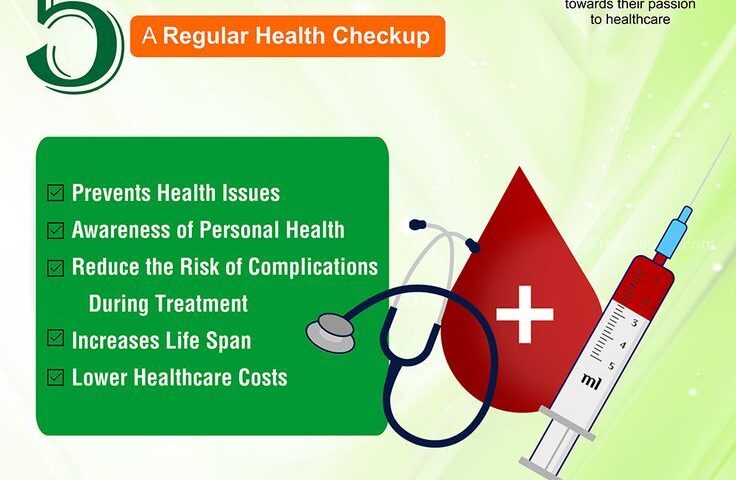
Winter brings cosy days, warm clothes, and hot drinks but it also brings many health challenges. The cold season can weaken our body’s immune system, making us more likely to catch infections like flu, cough, and fever.
This is why regular health check-ups become especially important in winter. They help us stay alert about our health, detect any early problems, and prevent seasonal illnesses before they get serious.
What Are Regular Health Check-ups?
Regular health check-upsHow To Stay Well In Winter For Health: mean visiting a doctor or clinic even when we feel fine. These check-ups include simple tests like blood pressure, sugar levels, cholesterol, and overall body examination. The goal is to catch small health problems early before they turn into bigger ones.
In winter, our body changes due to temperature and lifestyle. Regular check-ups help us understand how these changes affect our health and guide us to stay fit and strong all season.
Why Winter Demands Extra Health Care?
Winter affects our body in many ways. The cold air can make blood vessels tighten, increase blood pressure, and lower immunity. People with heart problems, diabetes, or joint pain often feel worse during winter.
Because of this, regular health check-ups help doctors track our condition and adjust medicines or diet if needed. For example:
- Blood pressure can rise in cold weather.
- Diabetic patients may face sugar fluctuations.
- Asthma or lung issues can worsen due to dry air.
Having a routine check-up ensures we manage these risks properly and prevent complications.
Benefits of Regular Health check-ups in Winter:
Early Detection of Illness
Many winter illnesses like flu, bronchitis, and pneumonia start with mild symptoms. Regular check-ups help catch them early, preventing serious conditions.
Better Immunity Management
Doctors can guide us on the right nutrition, supplements, or lifestyle habits to boost immunity during the cold season.
Control of Chronic Diseases:
For people with long-term conditions such as diabetes, heart disease, or arthritis, regular health check-ups are essential. The cold can affect blood flow and sugar levels early monitoring helps manage these changes.
https://www.medanta.org/patient-education-blog/everything-you-need-to-know-about-winte
Mental Health Awareness:
Winter can sometimes bring sadness or low energy, known as “winter blues.” Regular check-ups also include mental health discussions, helping us stay emotionally balanced.
Healthy Lifestyle Advice:
Doctors often give seasonal advice what to eat, how to stay active, and how to protect ourselves from the cold. This guidance keeps our body fit and our immunity strong.
How Often Should We Go for Check-ups?
For most healthy adults, a regular health check-up every 6 to 12 months is ideal. However, people with existing health conditions may need visits more often — especially during winter.
If we feel tired, have frequent colds, or notice changes in weight or energy, it’s best to visit a doctor without delay.
Winter Health Tips Along with Check ups:
While regular health check-ups keep us aware of our condition, these small habits also help us stay healthy:
- Eat warm and nutritious foods like soups, vegetables, and dry fruits.
- Drink enough water and herbal tea to stay hydrated.
- Sleep properly and rest your body.
- Get morning sunlight for vitamin D.
- Stay active with light exercises or indoor workouts.
- Avoid cold exposure and keep your body warm.
Combining good habits with check-ups keeps us safe from winter diseases.

Regular Health Check-ups for All Age Groups
Health is our greatest wealth, no matter what age we are. From childhood to old age, our body changes, and so do our health needs. That’s why regular health check-upsNatural Ways To Boost Immunity InThe Cold Season: are essential for everyone — they help detect diseases early, monitor our body condition, and prevent serious problems before they start.
Many people only visit a doctor when they feel sick, but real care means checking our health regularly, even when we feel fine. These routine visits build a strong foundation for lifelong wellness.
Regular Health Check-ups for Children:
Children grow quickly, and their bodies need constant care. Regular health check-ups during childhood help doctors track their growth, nutrition, and overall development.
What Doctors Check in Kids:
- Height, weight, and growth patterns
- Immunization and vaccination schedule
- Eye, ear, and dental health
- Common illnesses like cold, cough, or allergies
- Nutritional balance and physical activity
Why It Matters:
Early check-ups help identify issues like weak eyesight, slow growth, or vitamin deficiency before they become serious. Healthy habits learned in childhood last for life.
Tip: Parents should take children for a check-up every 6 months or as advised by the pediatrician.
Regular Health Check-ups for Teenagers
Teenage years bring many changes in body and mind. Hormones, diet, and school stress can affect overall health. Regular health check-ups at this stage are important for building a strong future.
What to Focus On:
- Nutritional needs and body weight
- Skin issues like acne
- Eye and dental check-ups
- Mental health and stress levels
- Physical fitness and posture
Why It’s Important:
Early care helps prevent problems like obesity, anxiety, and poor posture. It also teaches teens to take responsibility for their own health.
Regular Health Check-ups for Adults
Adulthood is often busy — work, family, and stress can cause people to ignore their health. But regular health check-ups are very important during this time because lifestyle diseases often start silently.
Key Tests for Adults:
- Blood pressure and cholesterol
- Blood sugar and thyroid levels
- Liver and kidney function
- Eye and dental exams
- Weight and body mass index (BMI)
- Heart and lung health checks
Why Adults Need It:
Many diseases like diabetes, hypertension, and heart problems show no early symptoms. Regular check-ups can detect them before they cause harm. A small step today can prevent big health issues tomorrow.
Tip: Adults should go for a general health check-up at least once a year.
Regular Health Check-ups for Women
Women’s health goes through many stages from puberty to pregnancy to menopause.help manage hormonal changes and detect issues early.
Important Tests for Women:
- Blood pressure and sugar
- Thyroid and iron levels
- Breast and cervical cancer screening
- Bone density test (especially after 40)
- Reproductive health and menstrual health check
Why It’s Important:
Many women face hidden health issues like anemia, stress, or hormonal imbalance. Early detection through check-ups helps them stay strong and active in every stage of life.
Regular Health Check-ups for Men:
Men often ignore health problems until they become serious. Regular visits to the doctor can help avoid many long-term illnesses.
Key Tests for Men:
- Blood pressure, cholesterol, and heart health
- Liver and kidney tests
- Prostate screening after age 40
- Blood sugar and vitamin levels
- Weight and lifestyle assessment
Why It’s Important:
Men are more prone to heart diseases and stress-related problems. Regular check-ups encourage preventive care and a healthier lifestyle.
Regular Health Check-ups for Elderly People:
As we age, our body becomes more sensitive. Bones weaken, metabolism slows, and immunity decreases. For older adults, regular health check-ups are a must to ensure comfort and independence.
What to Check in Seniors:
- Blood pressure and sugar levels
- Heart and kidney function
- Bone strength and joint health
- Eye, dental, and hearing exams
- Memory and mental wellness
Why It’s Important:
Early detection helps manage chronic diseases like arthritis, heart problems, and diabetes. Regular check-ups also improve quality of life and reduce hospital visits.
Tip: Seniors should go for a complete health check-up every 6 months.
Benefits of Regular Health Check-ups for All Ages
Early Detection: Identifies problems before symptoms appear.
Disease Prevention: Helps stop minor issues from growing into serious illnesses.
Longer Life: Regular monitoring supports healthy aging.
Peace of Mind: Knowing we are healthy reduces stress and worry.
Healthy Habits: Encourages balanced living and awareness at every age.
Conclusion
Regular health check-ups are not just for the sick — they’re for everyone who values good health. From children to the elderly, each age group benefits in a unique way.
By making checkups a part of our routine, we can detect diseases early, live longer, and enjoy a better quality of life. Health is not something to take for granted; it’s something we must protect every day.
Remember — prevention is better than cure, and a few minutes at the clinic today can save years of trouble tomorrow.
Regular Health Check-ups for All Age Groups
❓ FAQs on Regular Health Checkups in Winter
Why are regular health checkups important in winter?
Because cold weather can weaken immunity and affect existing health conditions, checkups help detect problems early and prevent serious illness.
How often should I get a checkup in winter?
At least once every 6 months, or more often if you have heart, diabetes, or lung problems.
What tests are common in winter health checkups?
Blood pressure, sugar, cholesterol, and vitamin D tests are common to track seasonal body changes.
Do regular health checkups improve immunity?
Yes. They help identify nutritional gaps or early signs of weakness so doctors can guide you to strengthen immunity naturally.
Are health checkups important for children in winter?
Yes, because children often get colds and flu. Checkups help ensure their immunity and growth are healthy during the season.
